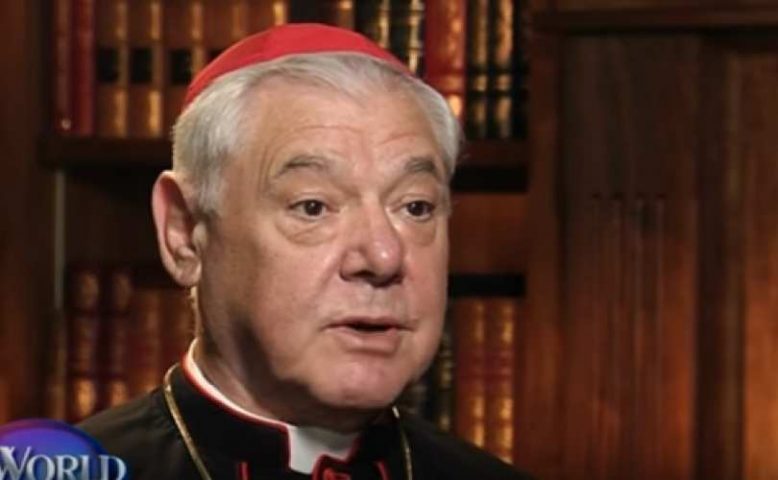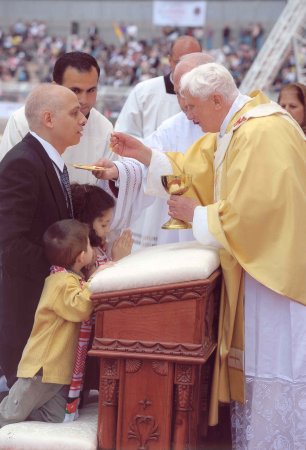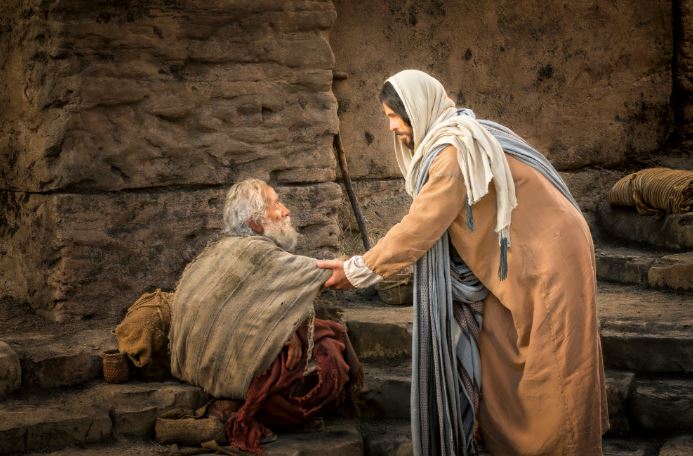Cardinal Müller: Dubia cardinals raise ‘legitimate questions’

Are We Witnessing the Battle Involving an Antimary and an Antichrist?
June 1, 2017
Marriage in light of Creation, Fall, and Redemption
June 1, 2017By Claire Chretien, LifeSiteNews, May 31, 2017 – Cardinal Gerhard Müller, who as the Prefect for the Congregation for the Doctrine of the Faith (CDF) is the Vatican’s official doctrine chief, has commented on bishops’ conferences coming up with different interpretations of Amoris Laetitia, the possibility of female deacons, and pro-abortion population controllers’ participation in a recent Vatican conference.
Müller gave a wide-ranging interview to EWTN’s Raymond Arroyo on his show The World Over. It aired last week.
The cardinal also addressed the status of Rome’s reconciliation efforts with the Society of St. Pius X (SSPX) and the “crisis in the liturgy” plaguing the Church.
Müller defended the pope’s controversial exhortation Amoris Laetitia, which Arroyo noted has caused “reams of paper and ink” to be spilled about what it “intends and what it means,” particularly in chapter eight. Müller noted Pope Francis often spoke about the “rehabilitation of the Catholic understanding of marriage only and exclusively with one man and one woman because that is the will of God.”
The main reason of the two synods on the family “and then the result in Amoris Laetitia is to underline the importance of the marriage and the families and the marriage, especially the marriage between baptized persons as the sacrament,” said Müller. “[It] is absolutely impossible that the Pope, as the successor of St. Peter and the vicar of Jesus Christ for the universal Church, presents a doctrine which is plainly against the words of Jesus Christ.”
Critics of Amoris Laetitia say it allows divorced and remarried Catholics without an annulment to receive the Sacraments sacrilegiously. Supporters of the exhortation, like Cardinal Walter Kasper, agree it does this, but say that’s a good thing. Others say Amoris Laetitia must be read through the lens of all other Church documents, meaning there’s no way a footnote could change 2,000 years of doctrine and practice.
Müller argued that Pope Francis is simply trying to “have in his sight…all these people who are living in the secularized society have not full understanding what is Christian life and thinking.”
“His thinking is all those people who are not so linked with the Church and have some difficulties, we must lead them, as good pastors until this point, until they could accept completely the Christian doctrine and Christian life and our understanding,” said Müller. He implied that the way footnote 351 is written means there must be valid sacramental Confession for a “remarried” divorcé without an annulment to receive Holy Communion.
There must be “inner conversion of the heart, penitence,” and “the clear will to not sin [at] the next opportunity” on the part of the penitent in order for him or her to receive Holy Communion, he said. “In this case, if they [the adulterous couple] are ready to live as sisters and brothers, [it] could be in some cases possible” for them to receive the Sacraments.
It’s not possible for a man to have two wives, one legal and one sacramental, said Müller. “We don’t accept polygamy.”
Müller said it’s “not Catholic” for bishops’ conferences to come up with their own interpretations of Amoris Laetitia. The bishops of Buenos Aires issued a directive to priests, of which Pope Francis said “there is no other interpretation,” instructing them to give Communion to “remarried” divorcés without annulments in some cases. Other bishops have said sacramental practice is to remain the same in their dioceses.
“It is not good that the bishops’ conference[s] are making official interpretation[s] of the pope,” said Müller. “That is not Catholic. We have this document of the Pope and it must be read in the context of the complete Catholic tradition. We don’t have two [Magisteriums], one of the Pope and another one of the bishops. I think it is a misunderstanding… [that] could make damage for the Catholic Church.”
The content of the dubia are “legitimate questions to the pope,” said Müller, but he said the “public discussion and tensions” between the pope and “some cardinals” is “not good in our world of the mass media.” Enemies of the Church are “glad” to see such “confusion.”
And “misunderstandings of the both sides” of the debate have “to do with ideological view of things and prejudices.” Some camps “argued too ideologically” during the synods, he said. “It’s not good to make a pressure only or to enter as a pressure group for own ideas in the synod.”
“There is a problem the Church [has] in the world of today: that we have two wings, ideological wings, extremes – and everybody want[s] to win the battle against the other one,” he continued. “But we have one revelation [that] is coming from God and the Revelation, the word of God unifies the believers. And [it] is not our task to unify, in a totalitarian way, everybody must think like me, because the thinking of another person is not important for my salvation. Only the word of God can unify the Church and can save everybody.”
Deaconesses, abortion activists, and the SSPX
Arroyo said he was in a green room with a prominent television journalist recently who told him how excited he is that Pope Francis is “opening up the possibility of female deaconesses” because “this is a great step toward female priests.”
“The Pope didn’t speak about female deacons in the threefold and one sacrament of ordination but he said this commission should make a collection of all the studies about the ‘deaconess’ or the female deacons in the antiquity,” said Müller. “I myself made a big collection of all these documents” which is 400 pages and “translated all from Greek and Latin.”
It is “not possible” for a female “deaconess” to receive the Sacrament of Holy Orders, thus actually being ordained, said Müller. “It will not come.”
Arroyo asked Müller if he’s disturbed by the Vatican’s recent hosting of pro-abortion population controllers like Paul Ehrlich.
It “could be the danger” that it looks like the Church is giving credence to the ideas of people like Ehrlich by inviting him, said Müller. “I think [these] people could be very good scientists but anthropologically they have some lacks, some deep lacks.”
He speculated that Pope Francis is trying to reach out to these people as a form of evangelization, and said other pontificates were accused of excluding or not interacting with the sciences.
Full canonical reconciliation between the SSPX and Rome “needs time,” Müller said. He said those seeking full communion with the Church must respect hierarchy, including the local bishop (the Society and diocesan bishops are frequently at odds, because the former are usually operating without the permission of the latter).
He criticized the notion that the SSPX are the “right” Catholics for sticking to the Old Rite. Müller also said popes, local synods, and other rites can “reorganize” the “exterior forms” of the liturgy.
Arroyo asked Müller for his thoughts on revert liturgies, particularly the Extraordinary Form of the Roman Rite.
“In the old form of the liturgy it was also possible to celebrate in a routine,” he said. Müller said a “functional understanding of the liturgy, more for religious entertainment,” can’t be fixed “only with the exterior exchange.”
Müller admitted that there’s currently a “crisis [in the] liturgy,” and “liturgical abuses” but suggested the crisis didn’t begin at the Second Vatican Council.
He also briefly and vaguely commented on the controversy over the pope’s apparent sacking of three CDF priests: “This is true that I am in favor of a better treatment of our officials in the Holy See because we cannot only speak about the social doctrine and we must also respect it.”
He continued:
And the Pope himself said we [have] some old behaviors of the courts and I am absolutely against this treatment and I think we can dismiss only people if they make a mistake and the criteria for our collaborators in our Congregation must be the orthodoxy and the integrity of moral and priestly life and the competence in the matter and other ‘criterias’ – must speak Italian or, we need people of different languages and cultures…
A full transcript of the interview can be read on Arroyo’s Facebook page.
https://www.lifesitenews.com/news/cardinal-mueller-ewtn-interview-on-amoris-laetitia-sspx-deaconesses





